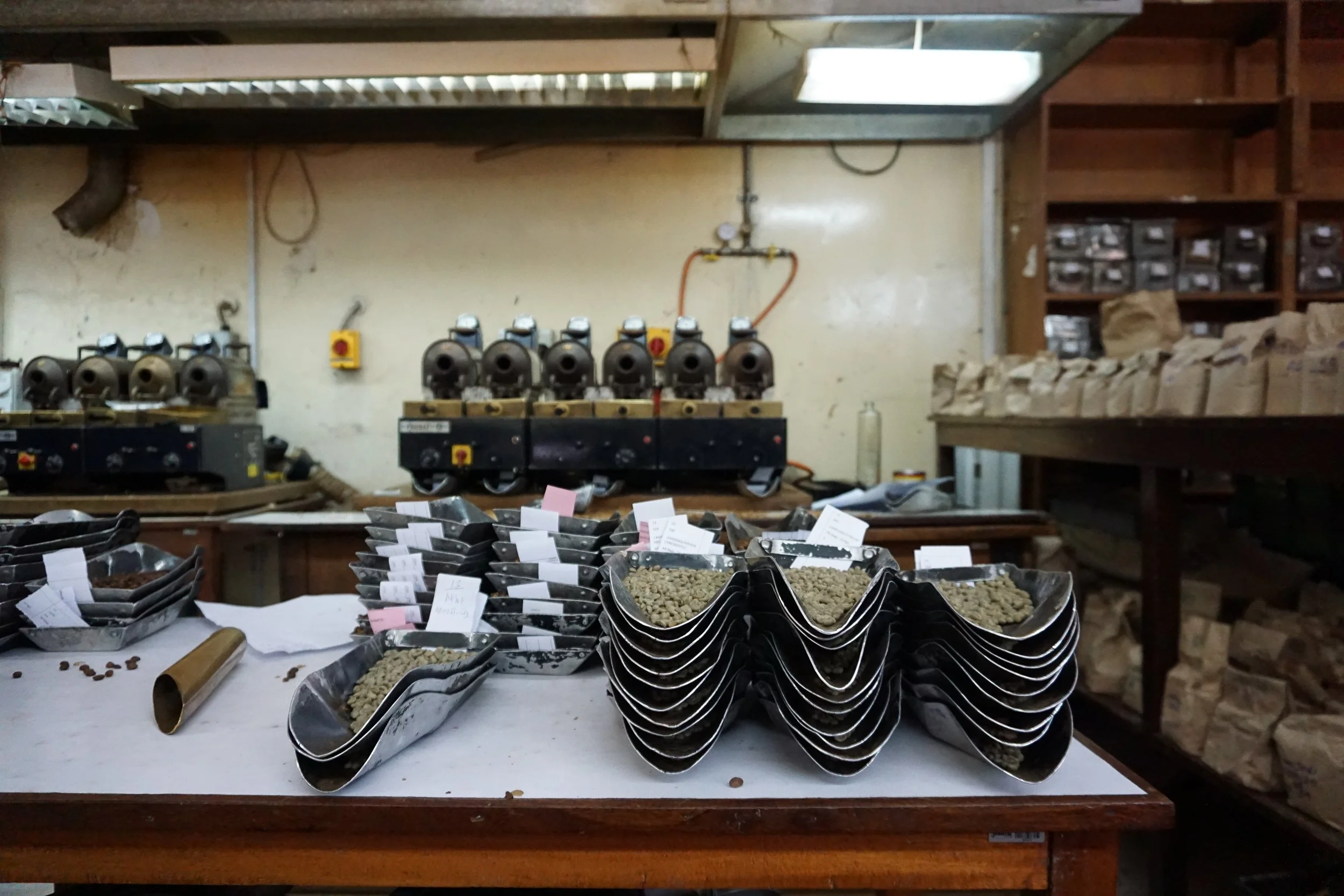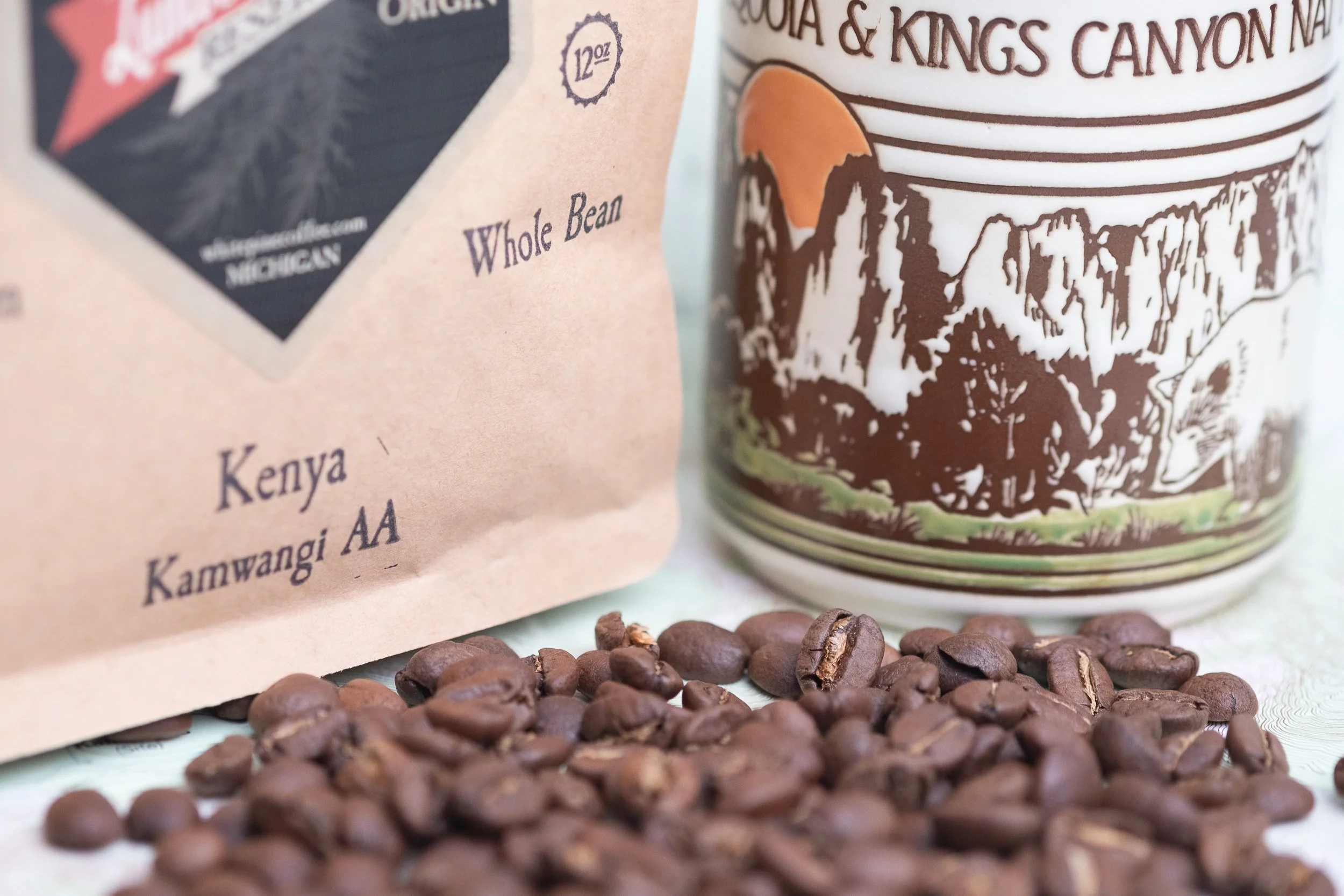Kenya - Kamwangi AA - Micro-Lot
Kenya - Kamwangi AA - Micro-Lot
Kamwangi - AA - Kirinyaga
Tasting Notes: Blackberry, Red Grape, Burnt Sugar
Roast Profile: Medium Roast
Origin: Kenya
Region: Kirinyaga
Farm: Kamwangi
Variety: Batian, SL28, SL34, Ruir 11
Processing: Washed
Altitude: 1,500 masl - 4,920 ft
The Cup: This coffee has flavors of cooked blackberry, red wine, cooked red grape, and burnt sugar. It has a sparkling malic acidity and lots of sugary sweetness.
The Farm: This microlot comes from the Kamwangi factory, which is located in the northeast part of Kirinyaga, Kenya. The factory is owned and managed by the New Ngariama Farmers Cooperative Society (F.C.S.). The coffee is grown at an elevation of 1500 MASL in a region with rich, volcanic soil that is home to Mt. Kenya. Approximately 985 active members deliver coffee to the factory, with each farmer owning an average of 200–250 coffee trees.
The Process: This is a Washed coffee. Farmers deliver their ripe cherry to the factory on the same day it is picked. The coffee is then depulped on traditional disc machines and fermented in open-air concrete tanks for 24–48 hours. It is then washed using water channels before being soaked for an additional 12–72 hours. The highest grades of coffee typically receive an extra soak of 12–24 hours, depending on available space on the drying beds. The coffee is then spread on raised beds to dry , beginning with skin-drying beds to bring the moisture content to around 44%. It is then spread on traditional drying beds for 9–13 days and constantly rotated. Once the moisture content reaches 11–13%, the coffee is moved to conditioning bins where it is stored and rotated to help homogenize moisture and stabilize the parchment.
The Story: This coffee is a microlot, which means it is traceable down to the factory level. It is a blend of Batian, SL28, SL34, and Ruiru 11 varieties. The majority of coffee farmers in Kenya own between 1/8 and 1/4 of a hectare of land, so they rely on a central processing unit for the sale and processing of their coffee. Producers deliver their coffee in cherry form to a factory, where it is blended with the rest of the day’s deliveries for processing. Our importer, Cafe Imports, sources its Kenyan coffee offerings through auctions, exporters, and "Second Window" relationships. During the harvest, a green buyer from Cafe Imports takes up residency in Kenya to cup a large number of samples, selecting the best of these lots to purchase as microlots (fewer than 100 bags).












